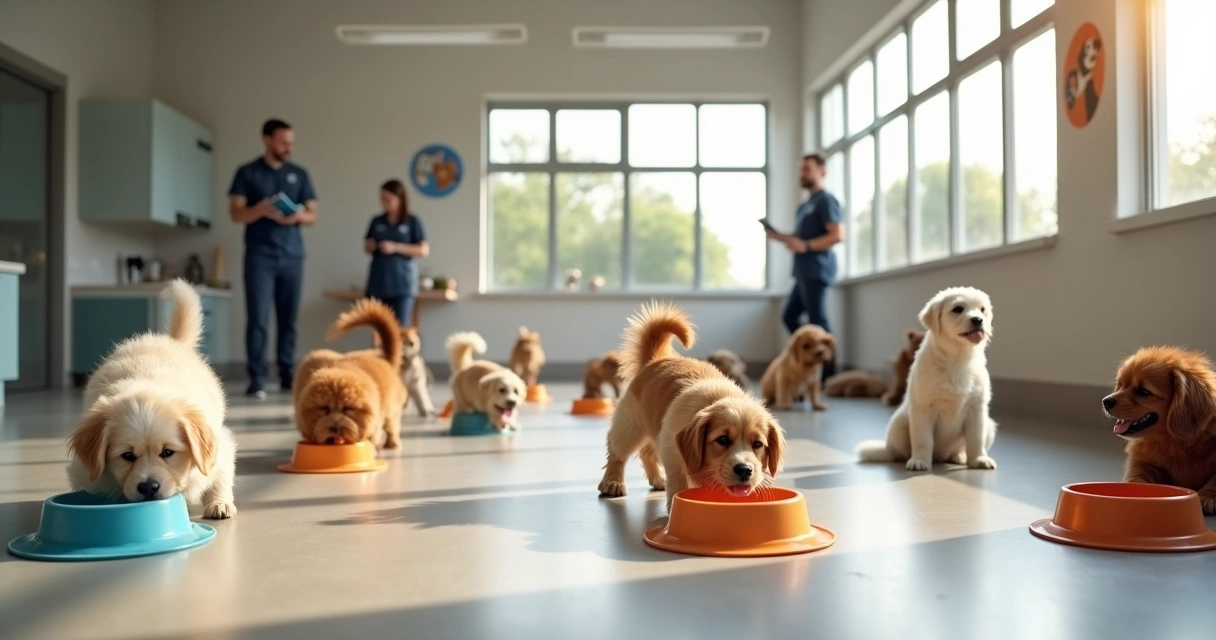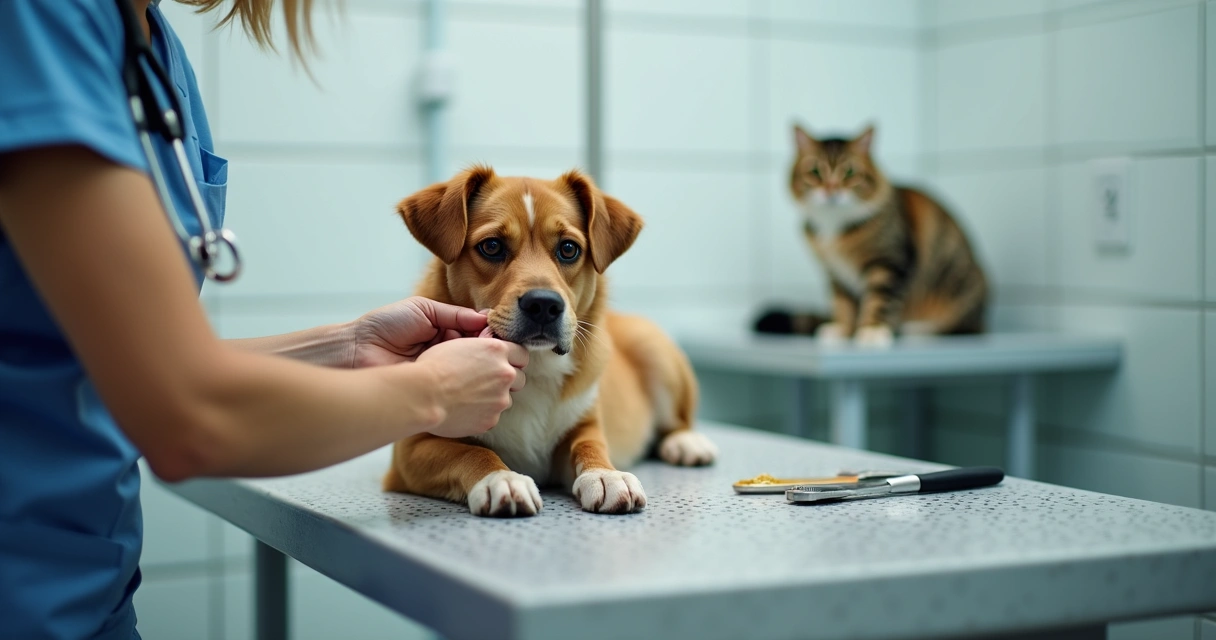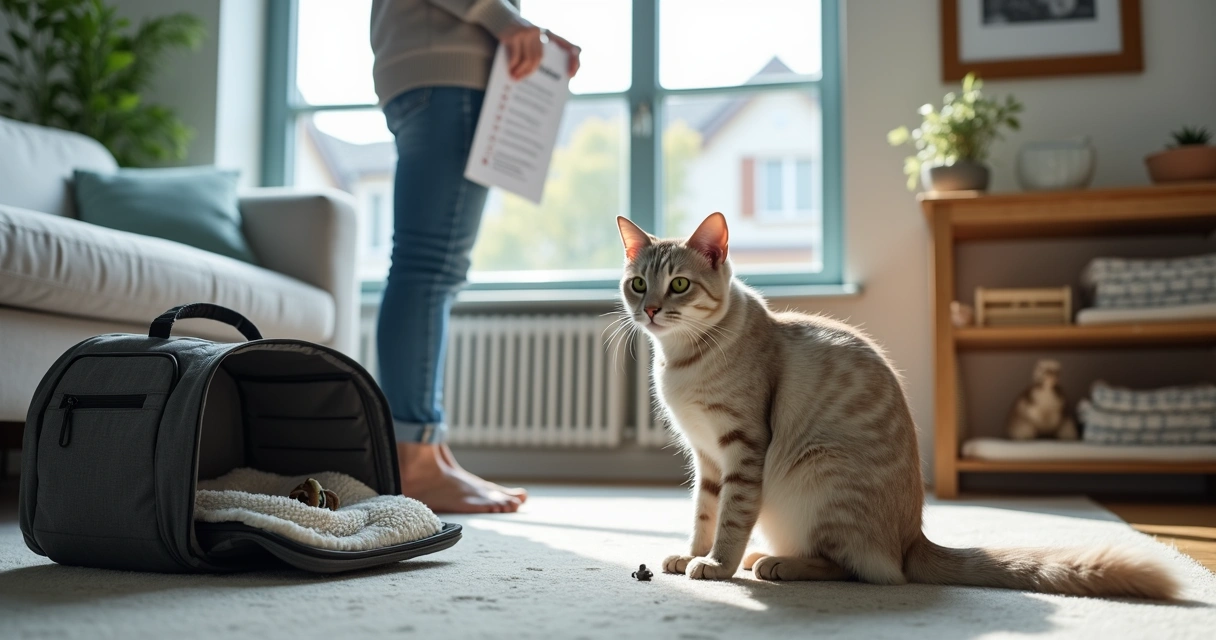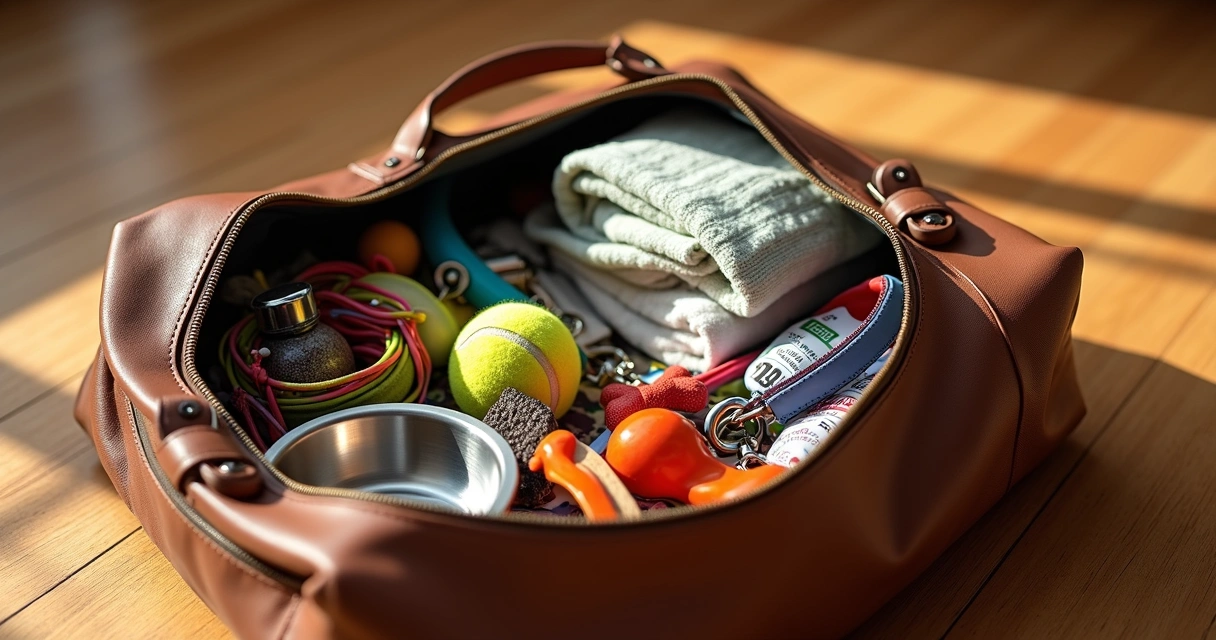Boarding your dog or cat is a big decision. You want peace of mind knowing your pet is not just safe but truly cared for; that means feeling confident about every aspect of their stay, including what goes into their bowl. Nutrition might seem like a small detail amid drop-offs, playtime, walks, and cuddles, but what your pet eats—especially when you’re away—can affect their comfort, health, and behavior.
If you’re considering a stay at Dogtown in Gloucester, MA, or any trusted boarding space, these nine questions can help you make sure your pet’s nutritional needs won’t be overlooked.

Why nutrition should matter at a boarding facility
It’s tempting to think your pet will be happy with anything as long as they’re eating, but that’s often not the case. According to Dr. Julie Churchill of the University of Minnesota, more than half of U.S. dogs and cats are already overweight, and changes in diet or feeding habits—even for a short stay—can play a role in weight gain or digestion (see her important comments on nutrition).
The American Veterinary Medical Association also highlights nutrition as central to overall pet health, and recommends regular review of diet. In fact, simple nutritional adjustments can support healthier body condition, mood, and even help pets adapt better to new routines like boarding.
What’s in your pet’s bowl matters, even away from home.
The nine questions every owner should ask
You probably have a list already, but don’t stop at “Will they feed my pet?” Pets can get nervous in new places, so understanding meal routines and food quality means fewer surprises and more comfort for your friend. Let’s go through the nine questions, and why they matter.
1. what brand and type of food do you offer?
The answer should be specific, not generic. Is the food dry, wet, or both? Is it labeled “complete and balanced” as advised by nutrition expert Dr. Joseph Wakshlag from Cornell University? Foods meeting AAFCO standards help avoid nutritional gaps (Cornell University nutrition guidance). Ask also about supplier reputation. At Dogtown, for example, food quality is never left to chance—staff are trained to recognize good nutrition as part of daily care.
2. can i bring my pet’s food from home?
This is a make-or-break for many pets, especially sensitive ones. Some facilities encourage it, others prefer to stick to what they know. Bringing your own food maintains dietary continuity, which reduces tummy upsets and nerves—something any caring staff will recognize. If your dog or cat is on a prescription diet, supplying your own food is often a must.
3. how are feeding routines managed?
Ask how meals are timed: are pets fed once, twice, or more per day, and at what intervals? Are feeding times adapted to suit your pet’s usual habits? Routine is comforting to pets, so a good facility, like Dogtown, will make every effort to match your pet’s schedule. Also, clarify who feeds them—do trained animal professionals handle every meal, or does the routine ever change?
4. do you separate feeding by group, size, or dietary needs?
Feeding all pets together can lead to stress, food stealing, or even fights. Organizations that supervise feeding according to size, temperament, and special needs reduce food-related stress. Reputable boarding facilities prioritize this. After all, your quiet cat probably shouldn’t face a hungry pack of energetic dogs at mealtime.
5. what precautions are taken for allergies or special diets?
Food allergies are increasingly common. Whether your pet is allergic to chicken or wheat, you need assurance that their meals will be kept strictly separate from others. Ask about cross-contamination policies and how staff verify diet restrictions. Any reluctance to answer is a red flag—Dogtown, for example, records allergies clearly during its free pre-enrollment assessment for every animal.
6. how are feeding instructions documented and followed?
Giving detailed directions—how much to feed, what brand, how to prepare—only works if the information actually reaches the staff preparing your pet’s food. Find out how instructions are documented and double-checked during each shift. Good facilities have clear written records, often shared digitally between staff, so nothing gets missed during busy hours.
7. can special supplements or medications be given with meals?
Medications and supplements are sometimes sprinkled on food. If your pet relies on special additions—fish oil, prescription powder, daily pills—the boarding staff must be able to administer them correctly and track it. A quick chat with staff about this will reveal their experience. At Dogtown, trained professionals are very comfortable managing medication routines along with regular feeding.
8. what happens if my pet refuses to eat?
Homesick pets can lose interest in food. Will staff hand-feed if necessary? Do they offer alternatives or flavor enhancers if a pet hasn’t eaten in a day? Facilities should contact you if eating issues last, and have a plan for picky eaters or those under stress. Some studies report staff can hesitate to raise nutritional concerns due to workload, so proactive communication is a good sign.
9. how is feedback on your pet’s eating shared?
Daily updates reassure you during your pet’s stay. Ask how, and how often, you’ll learn about your pet’s appetite: email, text, or phone? At Dogtown, feedback is always part of the package, so pet parents can relax (at least a little) knowing how mealtime is going.
Little details matter when your pet’s health is on the line.
Extra: nutrition matters for cats, too
Don’t forget our feline friends. Cats, especially those with sensitive stomachs, need careful transition plans, specific bowl types, and proper food placement. There are safe cat grooming and cat day camp options that pay attention to nutrition as much as canine programs.
The connection to play, grooming, and training
Proper nutrition has a ripple effect. Well-fed pets are more eager to enjoy group play sessions and handle interactive training with a sharper mind. Even grooming visits—like bathing or nail trims—go more smoothly when pets feel good inside and out (see how diet influences other animal health conditions).

Conclusion: don’t let nutrition slip through the cracks
Food is comfort, health, and safety for your pet. Boarding should feel like an extension of home, not a source of anxiety. If you make the effort to ask these nine questions, you’ll gain more than peace of mind—you’ll help create a stay where your companion thrives, not just survives.
If this all sounds like the kind of attention you want, schedule a pre-enrollment assessment at Dogtown and see for yourself what stress-free pet care looks like. Your pet’s tail—or purr—will thank you.
Frequently asked questions
What food do you provide for pets?
We offer high-quality dry and wet foods that are labeled “complete and balanced” according to recognized nutrition guidelines. Options are selected to suit the general needs of most dogs and cats, and we always share specific brand details with pet owners before boarding begins.
Can I bring my pet’s own food?
Yes, bringing your own food is welcome and often recommended, especially for pets with sensitive stomachs, special diets, or prescription requirements. We’ll keep your instructions on file and follow them closely.
How often are pets fed daily?
Pets are fed according to their usual home routine, typically once or twice a day. If your pet needs more frequent, smaller meals or has a unique feeding schedule, just let us know and we’ll keep to your instructions.
What if my pet has food allergies?
We take food allergies very seriously. All allergy information is clearly documented during assessment, and staff are trained to keep meals separate and avoid cross-contact. Your pet’s health and safety are our top priorities.
Do you follow special feeding instructions?
Absolutely. Written feeding instructions are carefully reviewed and double-checked by our team before every meal. Whether it’s a specific amount, supplement, or medicine with food, we make sure your pet’s needs are met throughout their entire stay.





